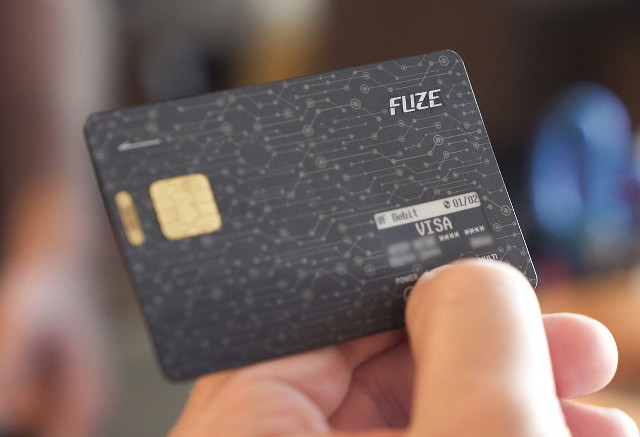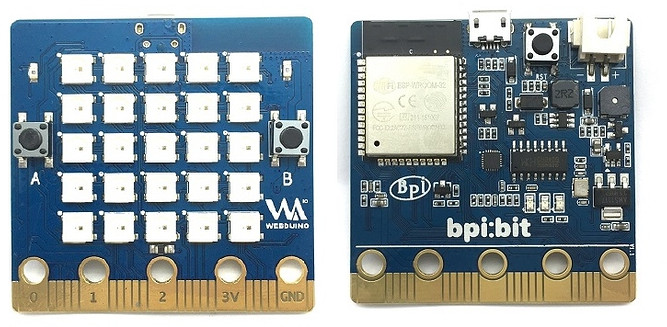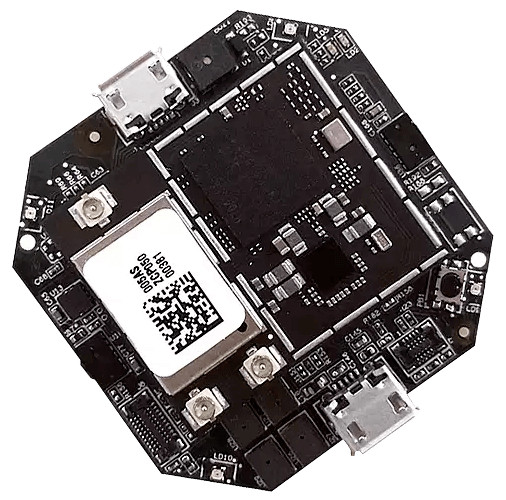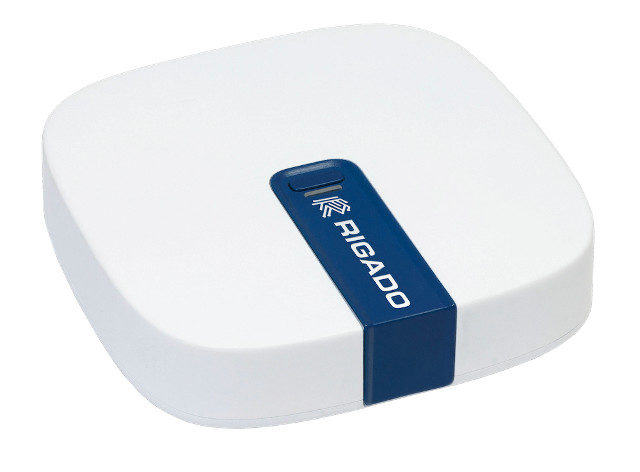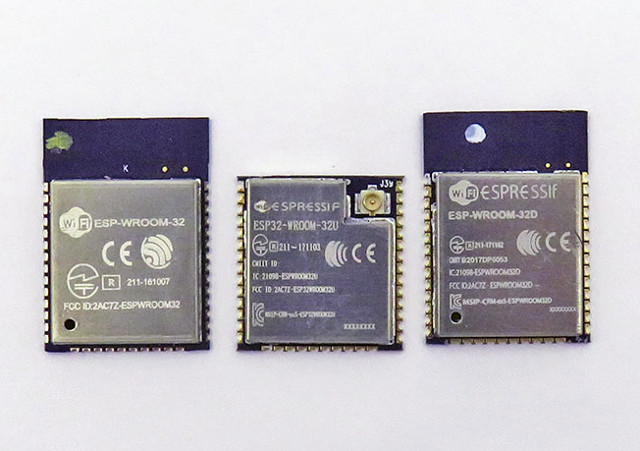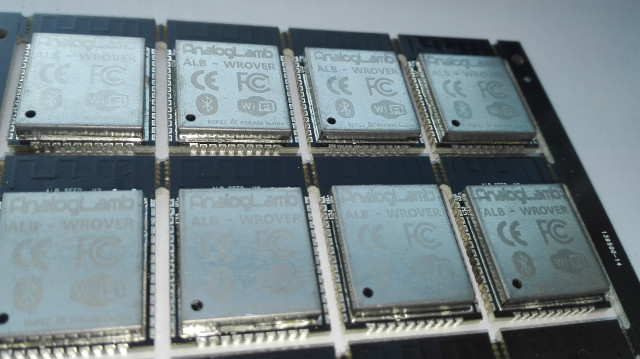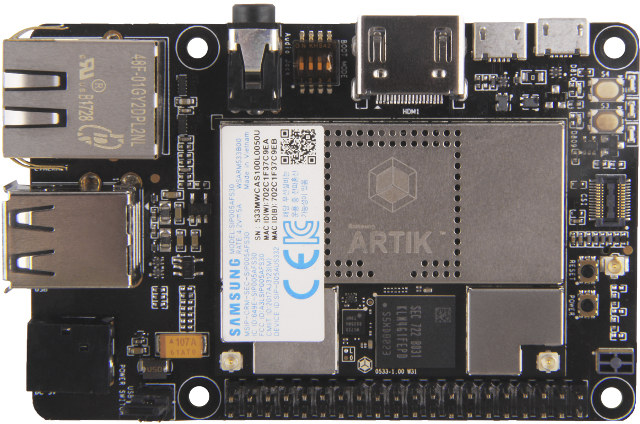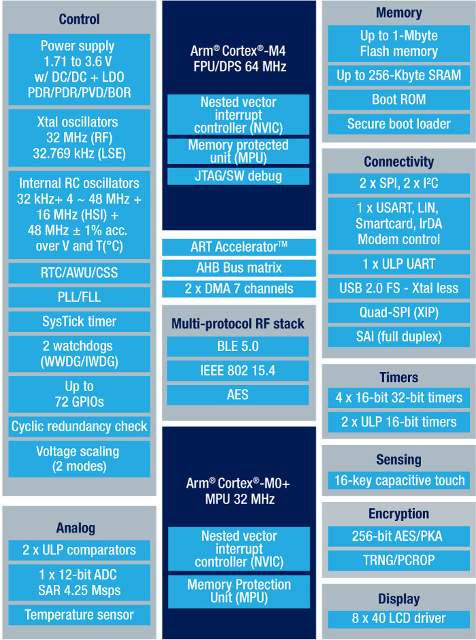FUZE Card is a Bluetooth enabled card with ePaper display that can store up to 30 real credit card. You’d program credit cards into it via Bluetooth Smart (BLE) using a smart phone app, and use it like a normal credit card while paying, after selecting the card you want to use. It’s more convenient than carrying many cards, and more secure since part of the number are hidden (shown as stars ****), so whoever get your card can’t easily make a copy of the information. A problem however is that according to ICE9 Consulting, there’s a security vulnerability that allows credit card numbers to be stolen via Bluetooth: CVE-2018-9119. The full details can be found on ICE9 blog post. They started to make a X-Ray to find out about the main components see (photo below), and the reverse-engineered the Bluetooth protocol using an Android smartphone, and software tools such as Burp […]
$19.50 BPI:bit ESP32 Board is Inspired by BBC Micro:bit, Compatible with Webduino and Arduino IDE
BBC micro:bit board for education was first unveiled in 2015, before starting to be given away to UK students, and later sold for about $19 in 2016. The board supports Bluetooth connectivity, includes an array of 25 LEDs, as well as a specific 20-pin edge connector also featuring 5 large holes (rings) for 3 I/Os and power. So far I had not seen any clones or alternative boards inspired from the design, as we see for Arduino or Raspberry Pi boards. But SinoVoIP (Banana Pi) has changed that with their BPI:bit clearly inspired from the Micro:bit, but offering both WiFi and Bluetooth connectivity via an ESP32 module. Hardware specifications: Wireless module – ESP-WROOM-32 module with WiFi and Bluetooth LE connectivity LEDs – 25x RGB LED array Sensors – 2x light sensors, thermistor, 9-axis accelerometer / gyroscope / compass (MPU-9250) Expansion – 3 digital/analog I/O rings, 3V/GND ring, 20-pin edge connector […]
RushUp KITRA Board Family is based on Samsung Artik 020, Artik 520/530, or Artik 710 Modules
Samsung first announced their Artik IoT modules almost three years ago, and until recently most Artik related products or development kits came from Samsung themselves, with no third party involved. But this has started to change recently with announcements such a Seeed Studio Eagleye 530s low cost development board based on Artik 530 module, and Resin.io Project Fin combining RPI CM3L module with an Artik 020 module for low power Bluetooth connectivity. But as I flicked through Resin.io supported hardware, I discovered they also supported Linux powered Artik 520 and Artik1020 module, as well as some new “KITRA” boards I had never heard of, and if we visit RushUp company website, we can see they have a bunch of Kutra boards and one IoT gateway based on Artik modules: KITRA 520 – Samsung ARTIK 520 product accelerator for advanced IoT KITRA 710 – Samsung ARTIK 710 product accelerator for advanced multimedia […]
Rigado Vesta IoT Gateway Runs Linux and Zephyr OS, Supports Bluetooth 5, 802.15.4, WiFi, Ethernet and Cellular Connectivity
I’ve recently read several open source software news related to Rigado IoT gateway, starting with Canonical announcement last month, that the gateway would ship with Ubuntu Core starting in summer 2018, and a few days ago it popped up again during Linaro CEO keynote at Linaro Connect HK 2018, as one of the first commercial devices to run the Zephyr OS, specifically its fully open source Bluetooth stack on a Nordic nRF52 chip. Rigado Vesta IoT gateway is not exactly new, as it was first announced in December 2016. The hardware relies on an NXP i.MX 6UL Cortex A7 processor, up to 256MB RAM, 4GB eMMC flash, and includes built-in support for dual band WiFi, Bluetooth Smart, Bluetooth 5/4.2, 802.15.4 (Thread), Fast Ethernet with PoE, as well as optional support for a cellular LTE Cat 1 modem. Rigado gateway hardware specifications: Processor – NXP i.MX6 UltraLite (G3) Arm Cortex A7 […]
ESP32-WROOM-32D / ESP32-WROOM-32U WiFi & Bluetooth Modules Deliver Better RF Performance
ESP-WROOM-32 is likely the most popular ESP32 WiFi + Bluetooth module on the market, but a few months ago, Espressif Systems unveiled two variants named ESP32-WROOM-32D / ESP32-WROOM-32U, which are based on ESP32-D0WD (5x5mm package) instead of ESP32-D0WDQ6 (6x6mm package), and are said to offer better RF performance ESP32-WROOM-32D is the most similar to ESP-WROOM-32 since it also comes with a PCB antenna, while ESP32-WROOM-32U is much smaller as it relies on an external WiFi/Bluetooth antenna via a u.FL connector. Both new modules are pin-to-pin compatible with ESP-WROOM-32 Key features: CPU – Espressif ESP32-D0WD dual core Tensilica processor Storage – 32Mbit SPI flash Crystal – 40 MHz Connectivity – Wi-Fi 802.11 b/g/n up to 150 Mbps, Bluetooth 4.2 LE I/Os – 38- catellagated pin with I/Os + GND plane Antenna ESP32-WROOM-32D – on-board antenna ESP32-WROOM-32U – u.FL connector for external IPEX antenna Dimensions ESP32-WROOM-32D – 18 x 25.5 x 3.1 […]
ALB32-WROVER is an ESP-WROOM-32 Compatible Module with 32 Mbit PSRAM, up to 128 Mbit Flash
ESP-WROOM-32 is one of the most commonly ESP32 WiFi + Bluetooth module, and does the job for many applications. However, it only includes 4MB (32Mbit) flash, and no external PSRAM, while Espressif ESP32 chip itself supports up to 128 Mbit (16MB) NOR flash and up to 32Mbit (4MB) PSRAM, so for applications demanding more resources (e.g. MicroPython), or for initial development it would good to have a module maxing out memory and storage capabilities of the chip. Analog Lamb ALB32-WROVER does exactly that with 32 Mbit PSRAM, and 32 to 128 Mbit flash, in a form factor compatible with ESP-WROOM-32 module. ALB32-WROVER specifications: WiSoC – Espressif ESP32 (Rev0?) Wi-Fi and Bluetooth combo chip External Memory – 32Mb PSRAM Storage – 32, 64, or 128Mbit Flash Dimensions – 18 x 25 x 3 mm Compatible with ESP-WROOM-32, except for GPIO16 & 17 (used for PSRAM) It’s very odd the company claims the […]
Eagleye 530s Board Features Samsung Artik 530s IoT Module, Leverages Raspberry Pi Form Factor
Samsung Artik 530 is a module designed for the Internet of Things based on a quad core Arm Cortex A9 processor, and supporting Ethernet, dual band WiFi, Bluetooth 4.2, and 802.15.4/Zigbee/Thread connectivity, as well as exposing display and camera interfaces, and of course various I/Os. The module was launched about one year ago with a developer kit that cost $189 and up, but Samsung has now worked with Seeed Studio to launch a cheaper developer board – called Eagleye – based on the secure version of the module (Artik 530s) and mostly following Raspberry Pi form factor in order to take advantage of its hardware ecosystem. Eagleye 530s board specifications: SoC – Unnamed quad core Arm Cortex A9 processor @ 1.2GHz with 3D graphics accelerator System Memory – 1GB DDR3 Storage – 4GB eMMC flash, SD card slot Connectivity 802.11a/b/g/n dual band SISO (2.4G/5G) Bluetooth 4.2(BLE+Classic) Zigbee/Thread 802.15.4 Gigabit Ethernet […]
STMicro STM32WB Dual Core Cortex M4/M0+ MCU Comes with Bluetooth 5 & 802.15.4 Radios
STMicro has announced yet another family part of their STM32 portfolio with STM32WB micro-controller family featuring an Arm Cortex M4 application core, a Cortex M0+ core to offload the main core of networking tasks, as well as Bluetooth 5 and 802.15.4 radios. The MCU’s 802.15.5 radio can run other wireless protocols concurrently, including OpenThread, ZigBee, or proprietary protocols used to connect devices to the Internet of Things (IoT). STM32WB MCUs share the following key specifications: Application Core – Arm Cortex-M4 CPU @ up to 64 MHz with FPU, adaptive real-time accelerator (ART Accelerator), MPU, 80 DMIPS and DSP instructions Memory – Up to 256 KB RAM, including 64 KB with hardware parity check, 20×32-bit Backup Register Storage Up to 1 MB Flash with sector protection (PCROP) against R/W operations for Bluetooth Low Energy and 802.15.4 SW stack Quad SPI memory interface with XIP Radio 2.4 GHz RF transceiver supporting Bluetooth […]


